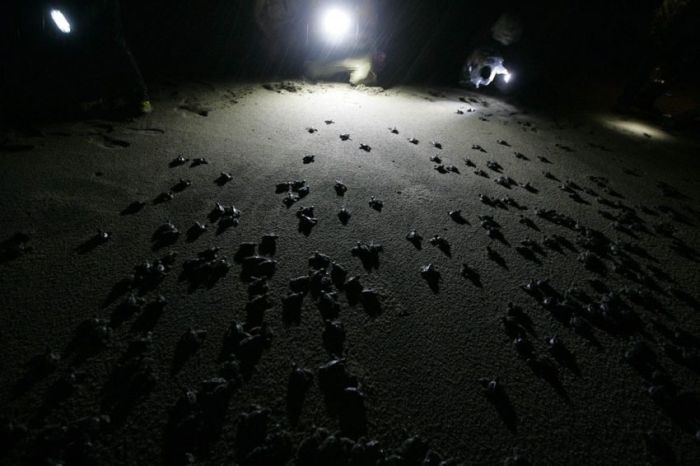|
|
Saving Baby Turtles, Rescue Operation
|
Shell
The upper shell of the turtle is called the carapace. The lower shell that encases the belly is called the plastron. The carapace and plastron are joined together on the turtle's sides by bony structures called bridges. The inner layer of a turtle's shell is made up of about 60 bones that include portions of the backbone and the ribs, meaning the turtle cannot crawl out of its shell. In most turtles, the outer layer of the shell is covered by horny scales called scutes that are part of its outer skin, or epidermis. Scutes are made up of a fibrous protein called keratin that also makes up the scales of other reptiles. These scutes overlap the seams between the shell bones and add strength to the shell. Some turtles do not have horny scutes. For example, the Leatherback turtle and the soft-shelled turtles have shells covered with leathery skin instead.
The rigid shell means turtles cannot breathe as other reptiles do, by changing the volume of their chest cavity via expansion and contraction of the ribs. Instead, turtles breathe in two ways. First, they employ buccal pumping, pulling air into their mouth then pushing it into the lungs via oscillations of the floor of the throat. Secondly, by contracting the abdominal muscles that cover the posterior opening of the shell, the internal volume of the shell increases, drawing air into the lungs, allowing these muscles to function in much the same way as the mammalian diaphragm.
|
|









